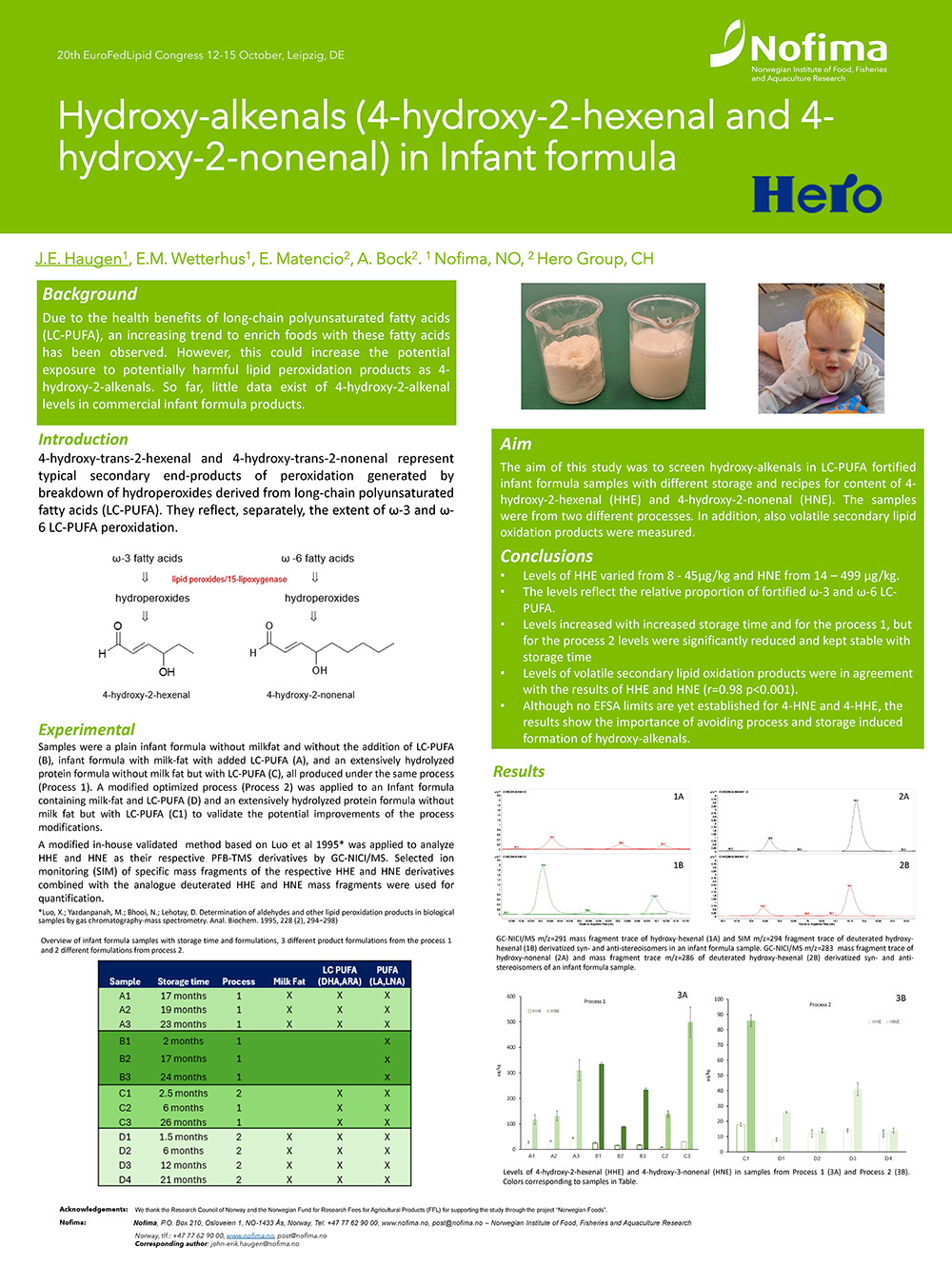Due to the health benefits of long-chain polyunsaturated fatty acids (LC-PUFA), an increasing trend to enrich foods with these fatty acids has been observed. However, this could increase the potential exposure to potentially harmful lipid peroxidation products as 4-hydroxy-2-alkenals.
So far, little data exist of 4-hydroxy-2-alkenals in commercial infant formula products. The aim of this study was to screen LC-PUFA fortified infant formula (non-commercial) products from two production processes with different storage dates for content of 4-hydroxy-2-hexenal (HHE) and 4-hydroxy-2-nonenal (HNE). In addition, also volatile secondary lipid oxidation products were measured.
Samples were a plain infant formula without milkfat and without the addition of LC-PUFA, infant formula with milk-fat with added LC-PUFA, and an extensively hydrolyzed protein formula without milk fat but with added LC-PUFA, all produced under the same process. A modified process was applied to an Infant formula containing milk-fat and LC-PUFA to validate the potential improvements of the process modifications.
Levels of HHE varied from 8 – 45 µg/kg and HNE from 14 – 449 µg/kg. For one of the production processes levels increased with decreasing shelf life. For the other process, levels kept low and fairly stable with decreasing shelf life. The levels found reflect the relative proportion of fortified ω-3 and ω-6 LC-PUFA. Levels of volatile secondary lipid oxidation products were in agreement with the results of HHE and HNE (r=0.98 p<0.001). Although no EFSA limits are yet established for 4-HNE and 4-HHE, the results show the importance of avoiding process and storage induced formation.
